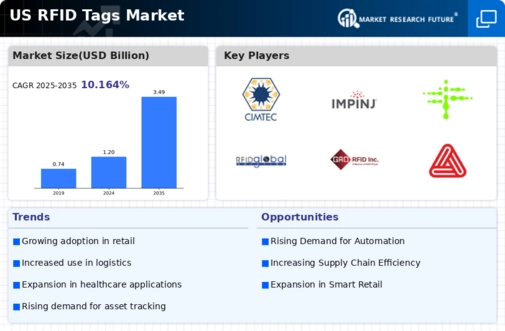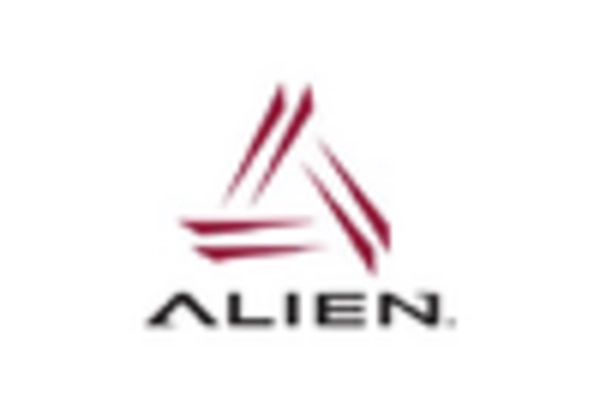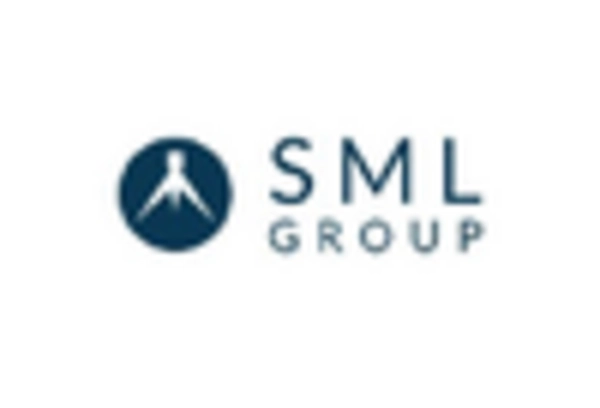Technological Integration with IoT
The RFID tags market is poised for growth due to the integration of RFID technology with the Internet of Things (IoT). This convergence allows for enhanced data collection and analysis, providing businesses with valuable insights into their operations. As more devices become interconnected, the demand for RFID tags is expected to rise, particularly in sectors such as manufacturing and logistics. The US market is witnessing a shift towards smart manufacturing, where RFID systems play a pivotal role in automating processes and improving efficiency. This technological integration is likely to propel the rfid tags market forward as companies seek to leverage IoT capabilities for better operational performance.
Increased Focus on Asset Management
The RFID tags market is witnessing growth due to an increased focus on asset management across various industries. Organizations are recognizing the value of RFID technology in tracking and managing assets efficiently. In sectors such as manufacturing and healthcare, the implementation of RFID systems has been shown to reduce asset loss by up to 30%. This heightened awareness of asset management solutions is driving investments in RFID technology, as companies aim to enhance operational efficiency and reduce costs. The rfid tags market is thus positioned to expand as more businesses adopt these systems to ensure better visibility and control over their assets.
Expansion of E-commerce and Online Retail
The RFID tags market is benefiting from the rapid expansion of e-commerce and online retail. As online shopping continues to grow, retailers are seeking innovative solutions to manage inventory and fulfill orders efficiently. RFID technology provides real-time visibility into stock levels, enabling retailers to optimize their supply chains and improve customer satisfaction. In the US, e-commerce sales are projected to reach $1 trillion by 2025, creating a substantial opportunity for the rfid tags market. Retailers are increasingly adopting RFID systems to enhance their operational capabilities, which is likely to drive further growth in this sector.
Rising Demand for Supply Chain Efficiency
The RFID tags market is experiencing a notable surge in demand. This increase is driven by the need for enhanced supply chain efficiency. Companies are increasingly adopting RFID technology to streamline inventory management and reduce operational costs. In the US, the logistics sector is projected to grow by approximately 4.5% annually, with RFID tags playing a crucial role in tracking goods in real-time. This technology allows businesses to minimize errors and improve accuracy in stock levels, which is essential for maintaining competitive advantage. As organizations seek to optimize their supply chains, the The RFID tags market is likely to benefit significantly from this trend. It provides a reliable solution for tracking assets and managing inventory effectively.
Regulatory Compliance and Safety Standards
The RFID tags market is influenced by the growing emphasis on regulatory compliance and safety standards in various sectors. Industries such as food and pharmaceuticals are increasingly required to adhere to strict regulations regarding traceability and safety. RFID technology offers a robust solution for meeting these compliance requirements, enabling companies to track products throughout the supply chain. In the US, the food safety regulations are becoming more stringent, prompting food manufacturers to invest in RFID systems to ensure compliance. This trend is likely to drive growth in the rfid tags market as businesses seek to implement reliable tracking solutions that align with regulatory demands.














